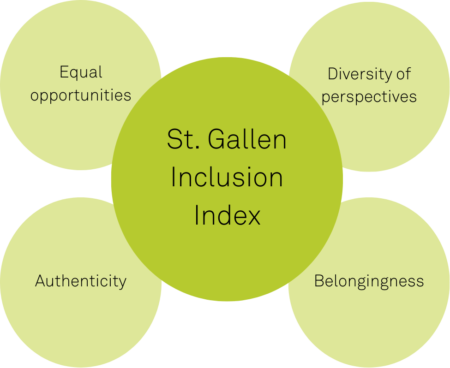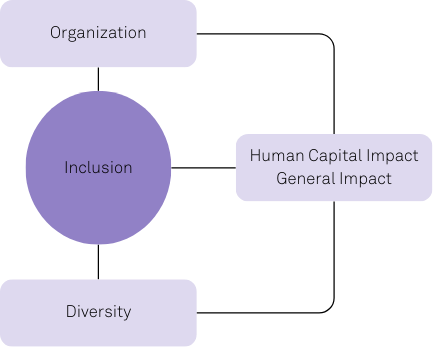Development of the Inclusion-Check
The Inclusion-Check application is based on the Incluscope survey and analysis tool, which was developed between 2018 and 2020 by Health & Medical Service Ltd. (HMS), MindStep and Helsana.
The topic area "Diversity & Inclusion" was accompanied by the scientific partner Prof. Dr. Böhm and the Center for Disability and Integration (CDI-HSG) of the University of St. Gallen and financially supported by the Federal Office for the Equality of Persons with Disabilities (FOGE).
The core element of Incluscope and Inclusion-Check is the "St. Gallen Inclusion Index". The index measures inclusion based on four dimensions, two of which relate to the organization and two to the individual.

Companies that have used Incluscope have rated the tool as very valuable and helpful. However, many organizations, especially smaller ones, do not have the financial resources for a comprehensive survey and consultation and have not yet focused on inclusion. With the Inclusion-Check, you now have the opportunity to raise awareness and receive a free and easily accessible offer. You too can use it to identify areas for action and to plan and implement appropriate measures.
For this purpose, HMS has further developed the Incluscope tool and automated the Inclusion-Check. The provision of a free basic version of the Inclusion-Check is once again made possible by the financial support of the EBGB.


